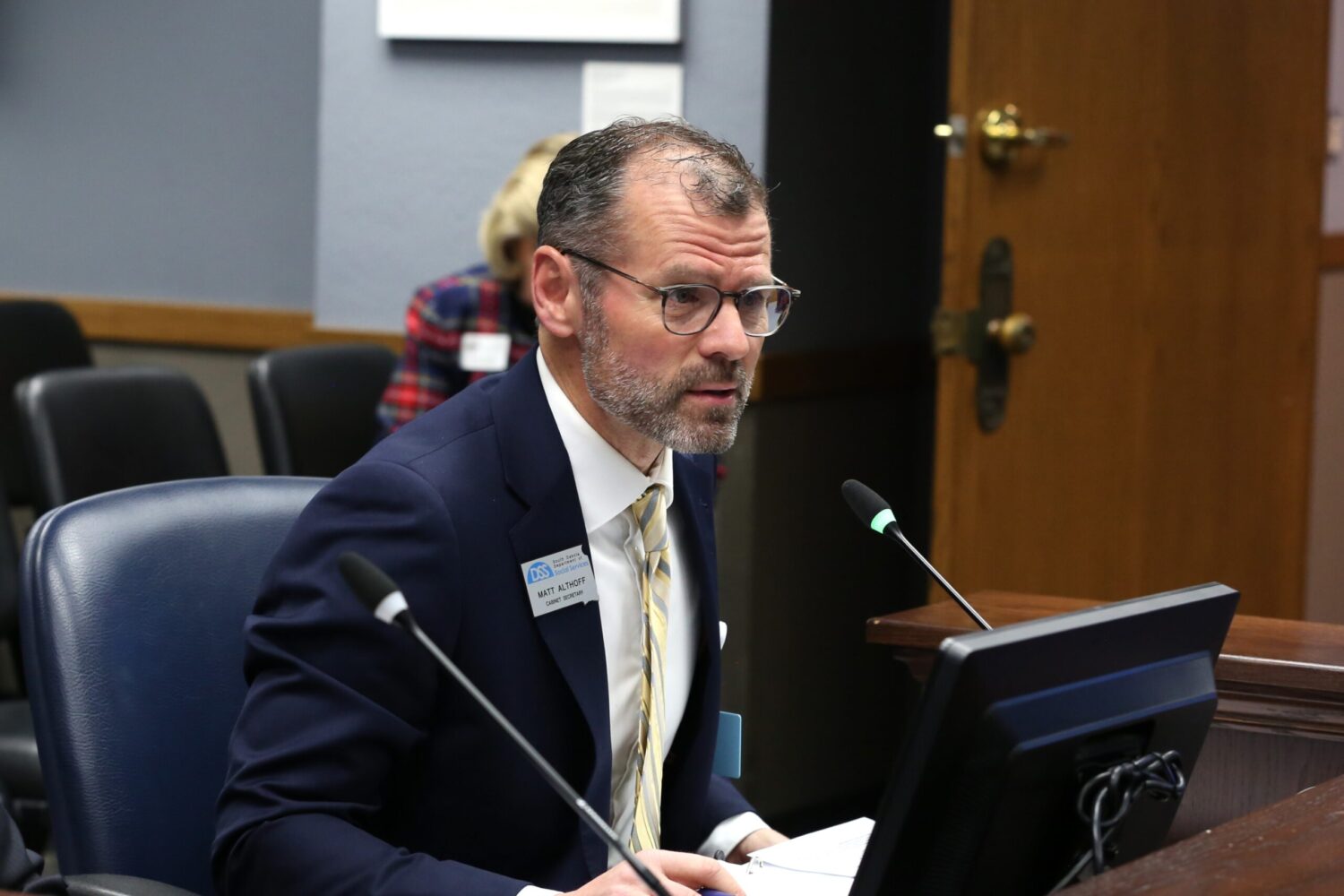
Makenzie Huber/South Dakota Searchlight
PIERRE — South Dakota officials expect Medicaid enrollment will decrease this year as the state uses a new method to identify applicants who are no longer eligible for the state-federal health care insurance.
The state Department of Social Services began cross-referencing Medicaid enrollees with other welfare programs in December, Secretary Matt Althoff told the Legislature’s Joint Appropriations Committee on Tuesday.
The method, called ex parte or automated renewal, will allow the state to identify enrollees who are no longer eligible, Althoff said. At the same time, it allows states to simplify Medicaid renewals, eliminating the need for people to resubmit eligibility information to the state.
The department expects Medicaid enrollment will decrease by nearly 10,000 between the end of 2024 and mid-2025. Enrollment numbers are projected to return to late-2024 levels by July 2026, according to the department’s presentation.

Officials also expect expansion enrollment numbers to plateau in the next couple of years.
South Dakota voters approved expanded Medicaid income eligibility in 2022. The Department of Social Services planned and staffed for 57,000 expansion enrollees, but enrollment has been slower than projected. Gov. Kristi Noem’s budget for the next fiscal year predicts expansion enrollment to reach 32,296. She’s proposing the elimination of 27 state positions due to that slow pace.

“Time is showing we were overprepared,” Althoff said. “I’d rather be, in that regard.”
Despite the lower-than-anticipated growth in Medicaid expansion numbers, the demographic adds significant costs to the state budget, Althoff said. Medicaid expansion clients, who account for 13% of Medicaid enrollees, often don’t enroll until they need medical care, rather than enrolling and seeking preventative services.
The state’s cost per Medicaid expansion enrollee for fiscal year 2025 is $11,605 – about $3,600 more than a traditional Medicaid enrollee.
Meanwhile, the future of Medicaid expansion could be affected by a resolution that passed the state House of Representatives on Tuesday. The resolution would ask voters to authorize ending Medicaid expansion if the federal government reduces its 90% funding share. If adopted by the Senate, the measure would go to voters in 2026.
